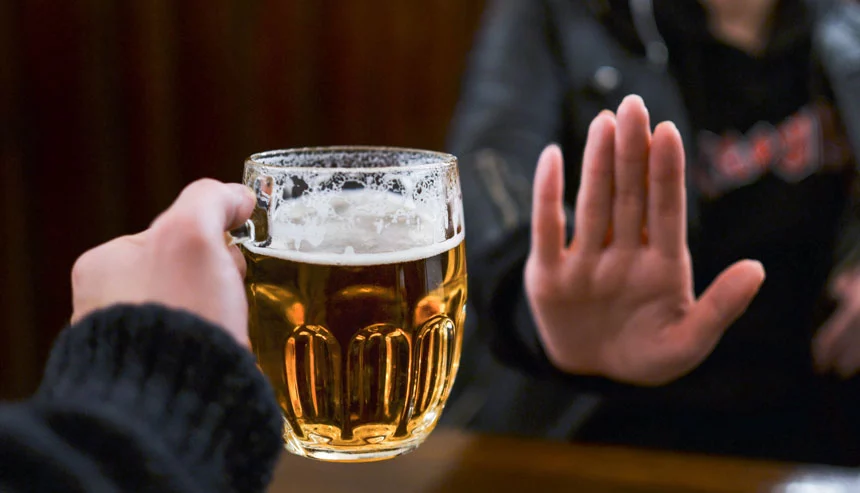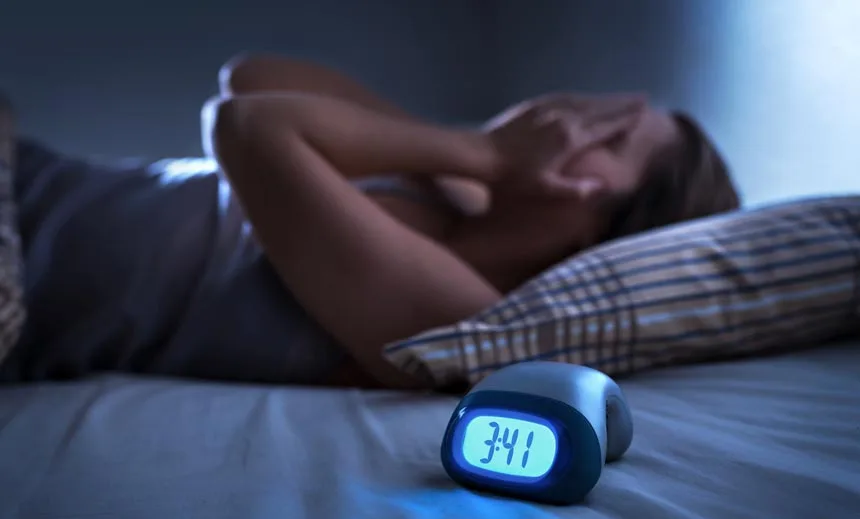What’s the Big Deal About Beer?
Table of Contents
- What’s the Big Deal About Beer?
- The Beer Basics
- How Beer Works in the Body
- How Much Beer Does It Take to Become Addicted
- Alcohol Withdrawal Symptoms
- Insomnia and Alcohol: A Proven Connection
- What Causes Alcohol Withdrawal Symptoms?
- Beer Withdrawal and Brain Chemistry
- Avoiding Alcohol Withdrawal
- Finding Effective Rehabs for Beer and Alcohol
- Help for Beer Withdrawal: Found Here
- Medically Reviewed By
Beer. We see it everywhere – on television, billboards, and countless other places. It’s advertised, glamorized, and embraced casually by society as a whole. According to a 2015 study, close to 60% of people over the age of 18 reported drinking alcohol within the past month, with beer undoubtedly being the drink of choice in many cases. It’s associated with many activities in American culture including drinking games and happy hours.
While beer often touts a relatively low alcohol content, the fact that it can be a dangerous, life threatening, and addictive substance goes unnoticed by many. This article will take a closer look at beer and how it can lead to alcohol addiction and, subsequently, alcohol abuse. This addiction can lead to beer withdrawal, which seems more prevalent than it might seem.
The Beer Basics
Beer is an alcoholic drink comprised of water, barley, hops, and yeast. Its alcohol content is usually relatively low, generally remaining in the range of two to twelve percent, with most common beers falling between the four to six percent range. For most people, it takes three to five beers to be considered over the legal limit to drive.
As beer culture becomes increasingly prevalent in America, we see a rise in craft beers, microbreweries, and home brewers. While people may be happy to see an increase in quality beers and exotic flavors, these domestic drafts often have a higher alcohol content – sometimes as high as 11 or 12 percent.
How Beer Works in the Body
Although beer seems relatively harmless, it actually affects every organ in the body. It depresses the central nervous system causing drowsiness, lightheadedness, dizziness, and a loss of coordination. It can also decrease inhibition and increase aggressiveness, which can cloud judgment and result in poor decision-making.
When absorbed into the bloodstream, alcohol creates a temporary state of euphoria accompanied by relaxation, lack of inhibition, and impaired judgment. The body can process 1 oz. of alcohol per hour, so the amount of beer you drink will impact how quickly you feel the effects.
These effects are why some countries have legal limits on how much alcohol is allowed in beer and other alcoholic beverages. The United States has no such limits on beer, although there are limits on wine and liquor that are similar to those found in other countries. The intoxicating effects can last anywhere from 30 minutes to 3 hours, depending on the amount consumed and whether it is consumed on an empty stomach.
Further Effects of Beer and Alcohol
Excessive drinking of alcoholic drinks can cause a wide range of effects, with typical symptoms including vomiting, nausea, a loss of consciousness, and even death if alcohol poisoning occurs. In terms of severe symptoms of alcohol dependence, it can also cause birth defects and complications in pregnant women. One study showed that less than one day a week of maternal alcohol intake resulted in twice the risk for certain defects.
Because of its depressant effects, alcohol can slow down many of the body’s systems: heart rate and breathing are two major examples of this. Small amounts of alcohol will make you relaxed, but larger amounts can slow your body so much that it interferes with your ability to maintain basic life functions. A common symptom of this is someone becoming unresponsive when they drink too much—they fall into a stupor or even faint.
The amount of time that alcohol stays in your body depends on several factors, including your weight, age, metabolism, and other drugs you might be taking at the time (like medications for anxiety).
How Much Beer Does It Take to Become Addicted
The World Health Organization suggests that alcoholism is one of the most common addictive disorders in the world. The WHO also estimates that roughly 2 billion people are at risk of developing a problem with alcohol. This means that 1 in every 13 adults, or just under 6% of the world’s population, may be suffering from a condition related to alcohol consumption.
It also means that every year, about 3 million people die from alcohol-related causes—bringing down the global average life expectancy by an average of two years for each person who dies.
On average, it takes roughly 10 times as much alcohol to become addicted to it in comparison to how much it takes to develop a habit of consuming it. The exact numbers vary by individual and some people may be more sensitive to the effects of alcohol than others.
Risk Factors for Alcohol Use Disorders
The amount of beer it takes to become addicted and considered to have developed an alcohol use disorder differs from person to person, and depends on a number of factors. For example, a man who drinks 15 or more beers a week runs the risk of becoming addicted, while for women, this number may be closer to 12. Anyone who consumes five or more alcoholic beverages every time they drink runs the risk of becoming addicted.
Alcohol Withdrawal Symptoms
Think of these as the side effects when you stop drinking. Alcohol withdrawal syndrome essentially refers to this phenomenon. Alcohol withdrawal symptoms can be quite extreme.
In fact, experiencing alcohol withdrawal symptoms are key among the reasons why many people struggle so hard to quit. When a person begins to experience alcohol withdrawal symptoms when abstaining, this is generally a good indicator of addiction.
Alcohol withdrawal symptoms begin when someone stops drinking alcohol, whether it is temporary or permanent. Alcohol withdrawal symptoms can range from mild to severe but, typically, the most severe symptoms are more pronounced in someone who has drunk more and for a longer amount of time.
Potential Timelines for Alcohol Withdrawal Symptoms
Here are some examples of alcohol withdrawal symptoms along with a typical alcohol withdrawal timeline:
Mild or Minor Alcohol Withdrawal Symptoms: These can be considered to be the majority of the symptoms someone with a casual beer habit experiences. These are considered part and parcel of a minor withdrawal. They usually begin to occur within 24 hours of when a person has had their last drink. They include shaking, insomnia, anxiety, panic, twitching, sweating, elevated pulse, blood pressure, and an upset stomach.
Moderate or Intermediate Alcohol Withdrawal Symptoms: These typically occur within 24-36 hours of when the last drink was consumed. They include more intense anxiety, tremors, insomnia, seizures, hallucination, high blood pressure, and racing pulse.
Severe or Major Alcohol Withdrawal Symptoms (aka Delirium Tremens): These symptoms usually occur within 48 hours of the last drink and are characterized by disorientation, rapid breathing, tremulousness, intense sweating, hallucinations, racing heart, fever, irregular heartbeat, and blood pressure spikes.
Insomnia and Alcohol: A Proven Connection
Speaking specifically about insomnia, many people who drink heavily also have sleep problems. When you drink, your brain actually releases chemicals that help you fall asleep. When you stop drinking suddenly – or try to quit – your body starts to crave those chemicals that it has gotten used to over time. As time goes on and you don’t get the chemicals that your body is accustomed to, it becomes more and more difficult to sleep.
While this may seem like a small issue compared to the other withdrawal symptoms, it is still extremely frustrating. Unlike all of the other alcohol withdrawal symptoms (which generally last one or two weeks), insomnia can last for months after you have stopped drinking.
These effects are likely to occur in people who have engaged in excessive alcohol consumption for an extended period of time or reliably consumed alcohol on a daily basis over a long duration. Alcohol use
Alcohol withdrawal can be dangerous to those who have high blood pressure, as it will raise blood pressure even further. These people put themselves at risk for a heart attack or stroke. To mitigate these risks, the American Heart Association insists on a maximum of one drink a day for women, and two drinks a day for men.
What Causes Alcohol Withdrawal Symptoms?
Studies have shown that we can develop a physical dependence on alcohol, meaning that our bodies need it to function properly. When we suddenly stop using it, our brains and bodies go through changes as it adjusts to the lack of alcohol.
In order to experience alcohol withdrawal symptoms, you need to have developed a physical dependence on alcohol—meaning you’ve been using it regularly for some time and your body has adapted in ways that rely on it. Withdrawal symptoms can vary based on how long and how much you’ve been drinking; smaller amounts over shorter periods of time may not produce as severe a reaction as someone who has been regularly drinking large amounts over an extended period of time.
Beer Withdrawal and Brain Chemistry
Alcohol withdrawal is caused by neurotransmitter rebound. The main neurotransmitter system that is affected by beer is the GABA (gamma-aminobutyric acid) system. When GABA receptors are affected by beer, it causes them to activate, resulting in feelings of calmness and happiness.
When they are exposed to alcohol for long periods of time, it becomes more difficult to achieve this desired state. When the alcohol is no longer present, the receptors become desensitized and respond weakly to the presence of GABA, resulting in anxiety, panic, and insomnia.
Simultaneously, the brain tries to counterbalance its neurochemistry by producing adrenaline and other similar neurotransmitters. When the alcohol is taken away, adrenaline is still produced, but the absence of alcohol’s oppositional effect causes it to run rampant in the brain causing things like anxiety and high blood pressure.
There are many risk factors associated not just with heavy drinking but also with haphazardly approaching sobriety. Persons may decide to suddenly stop drinking. It is at this point that the beer withdrawal symptoms kick in and these can lead to harder rebounds or even delirium where the person is not in their right mind and so, not thinking clearly.
Avoiding Alcohol Withdrawal
Alcohol withdrawal poses a hurdle for those looking to overcome this specific variety of drug abuse. However, there are ways to wean yourself and keep withdrawal symptoms to a minimum. One way is to taper use slowly.
This can be done by drinking just enough beer to eliminate symptoms and creating a schedule for yourself to follow while tapering. However, it is difficult to know exactly how much to drink to eliminate symptoms while also avoiding relapse into heavier drinking.
To safely and effectively get over your addiction, you may need to seek medical attention for the addiction. Alcohol detox can provide you with medical supervision and certified addiction withdrawal experts who will make sure that you get through the withdrawal process as comfortably as possible with a drastically reduced risk of relapse.
The Importance of Safe and Supervised Detox from Alcohol
It’s important to note that alcohol withdrawal can be deadly, and should be done under the care and supervision of qualified treatment providers to mitigate serious health risks.
Longer-term addiction care in an accredited treatment center facility or treatment provider can also avail you of therapy that can help identify issues that led to your addiction so the problem can be treated at its root.
Beer can seem like a harmless, recreational commodity that helps people loosen up during social events or stressful times, but the potential for danger and addiction when drinking is excessive is not to be underestimated. Addiction symptoms tend to creep up on you.
Alcohol use disorders can be incredibly hard to get ahead of, especially in a society that does not take the potential for alcohol as a severe substance that can be abused seriously.If you suspect that you or a loved one is struggling with beer or alcohol addiction of any kind, seek out help immediately to stop dependence in its tracks.
What sort of addiction treatment exists?
Over the years, many studies have been conducted on the negative effects of alcohol abuse. According to a study done by the University of New Hampshire, alcohol abusers are more likely to develop health problems, social problems, and legal problems. The study also reported that alcohol abusers have a higher risk of death compared to non-alcohol abusers.
The National Institute on Alcohol Abuse and Alcoholism also reported that there are around 88,000 deaths every year due to alcohol abuse. What they didn’t mention is that alcohol addiction is an illness that requires treatment just like any other illness. The negative effects of alcohol abuse should be taken seriously and individuals should seek treatment for alcohol addiction
Finding Effective Rehabs for Beer and Alcohol
So, you’ve decided that you’re stopping drinking. Great! You’re looking into getting a specific treatment provider and, as you seek medical advice from a certified addiction professional, are wondering what treatment facilities actually offer to help people quit drinking.
Let’s be clear, a high-quality, certified, addiction treatment center will offer a range of treatment options and should be staffed by qualified and accredited medical professionals overseeing their programs. Let’s talk about some of the types of options you’ll find at a good treatment facility.
Alcohol Detox
We’ve talked about alcohol detox before but, in essence, the physical dependency that your body has on the substance must be severed. If you’ve ever experienced alcohol withdrawal before, you know just how rough that can be. Good treatment centers offer inpatient services for dealing with this phase and the severe withdrawal symptoms that go along with it.
Therapy
Once you’re past the stage of beer withdrawal, it is critical to receive treatment for the addiction itself. A professional mental health medical provider executes these treatments. They may include cognitive behavioral therapy, family therapy, or even group therapy sessions.
Support Groups
We’re talking about peer support groups and programs like the 12-step AA program. These aren’t for everyone but they can be indispensable for the right person. They also have quite extensive histories of working and providing the type of solidarity and support needed for a long life of sobriety.
Help for Beer Withdrawal: Found Here
If you or someone you know needs help with substance abuse Find Addiction Rehabs is here to help. Call anytime 7 days a week 24 hours a day. Our dedicated recovery representatives are waiting to help around the clock, so if the beer has become an obstacle in your life, give yourself a break and reach out now!
Rachael Goldstein has been a freelance writer for more than 10 years, having written for Find Addiction Rehabs for the past two years. She specializes in writing about the law, mental health, psychology, and addiction. She is the owner and author of the website www.addicted-to-sobriety.com. Rachael is also a licensed attorney in the state of Pennsylvania.





